
The realm of air travel, often perceived as a gateway to new experiences and distant horizons, is increasingly shadowed by concerns over personal privacy and security. While passengers entrust airlines with their most sensitive information, recent incidents reveal a troubling pattern of data misuse, sometimes by airline personnel or contractors, and at other times by opportunistic strangers. These occurrences underscore a pressing need for heightened vigilance from travelers and more robust data protection protocols from the industry.
One such disturbing incident came to light when Hannah Smethurst, a 23-year-old British passenger, found herself in an unsettling situation while awaiting her flight. The Guardian reported that a contractor working for Etihad Airways accessed her personal details through the airline’s system. This occurred after the individual allegedly viewed her passport as she waited to board a flight from Abu Dhabi to Manchester.
Ms. Smethurst swiftly took to Twitter to express her distress, recounting how a person associated with Etihad Airways utilized her personal data from the airline database. This access allowed the individual to retrieve her phone number and subsequently send her unsolicited text messages. She described the experience as a “terrifying experience travelling alone,” highlighting the profound sense of vulnerability it instilled.
Screenshots of the messages revealed the brazen nature of the breach. The worker initiated contact with a casual “Heyyy I have seen you from abudhabi,” accompanied by a smiley-face emoji. When Ms. Smethurst questioned the origin of her number, he candidly admitted, “I searched u in the system.” He further clarified his status, stating he was “working” and had used the airline’s internal database.

The exchange continued with the worker adding, “Sorry for the trouble. If am disturbing u… just block me.” However, a mere four minutes later, according to Ms. Smethurst’s screenshot, he sent another message: “FYI Ur flight is boarding.” This suggested an ongoing, unwanted awareness of her movements, amplifying her discomfort.
Returning to her home in Preston, northwest England, Ms. Smethurst conveyed to the Guardian that the incident left her feeling profoundly unsafe. She articulated, “I was alone, so I just felt really vulnerable because it stuck in my mind that he knows my number, knows my home address and my full name and email address and obviously everything you give the airline when you book.” This realization underscored the comprehensive nature of the personal data compromised.
Her feelings were compounded by the dismissive response she initially received from airport staff when she reported the incident. A manager, she recounted, offered to remove her from the flight to facilitate filing a police report. This option, however, came with the significant inconvenience of a 24-hour wait for another flight to Manchester, a deterrent for any traveler eager to reach their destination.
After consulting with her mother, who encouraged her to maintain composure and proceed with her journey, Ms. Smethurst boarded her flight. Upon her arrival in England, she found relief as customer-service representatives addressed the situation more appropriately, she told The Guardian. Etihad Airways, in a statement to Insider, affirmed their response, stating, “Our team has been in contact with the guest, and Etihad initiated a full investigation as soon as it was made aware of inappropriate conduct by an employee of a third-party contractor.”
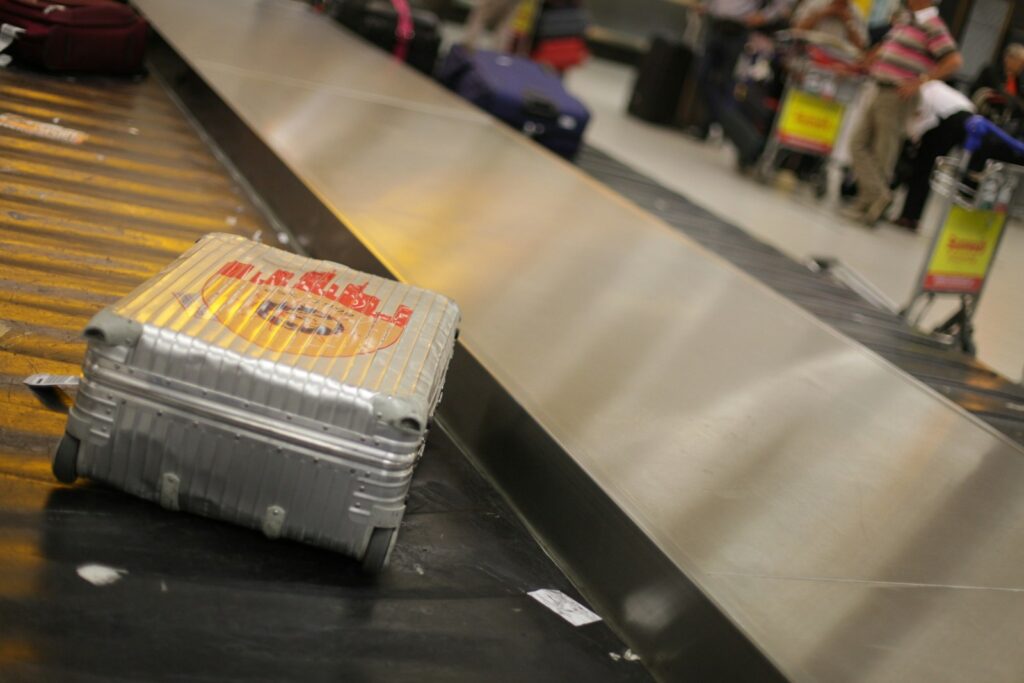
The airline further communicated the outcome of their internal review. “As a result of the investigation, the relevant employee involved has been disciplined in accordance with the contractor’s disciplinary procedures,” the statement read. Emphasizing their commitment to passenger well-being, Etihad concluded, “The privacy and safety of our guests is our number one priority, and we sincerely apologize for the distress caused to our guest.” Ms. Smethurst herself did not immediately respond to Insider’s request for comment via Twitter.
Beyond the unsettling experiences involving airline internal systems, another common vulnerability for travelers lies in the information publicly displayed on luggage tags. A prominent lawsuit currently facing American Airlines illustrates this alternative, yet equally distressing, form of personal data exploitation. Ashley Barno, a 34-year-old social media and trade show professional, initiated legal action against the airline after an employee allegedly sent her unwanted messages. This occurred last April, as she was preparing for a business flight from San Diego to Chicago.
As Ms. Barno “settled into her seat,” an unexpected text conversation began. The unknown sender initiated with a simple “Hey Ashley!” to which she politely responded, “Hello!” When she expressed her confusion about the sender’s identity, the individual identified himself as Ahmad, an American Airlines employee. He then revealed his unsettling observation: “I met you the other day at the airport. Btw I must tell you that you are gorgeous! You are looking very gorgeous in grey top today!!”
This alarming specificity prompted Ms. Barno to question how he obtained her contact information. Ahmad’s candid admission revealed a surprising method: “Honestly I got it from ur bagtag.” He disclosed that he had seen her at the San Diego airport a few days prior and was on the same Chicago-bound flight, eventually headed home to Washington D.C. The messages escalated with Ahmad offering preferential treatment, proposing, “I can get you a better seat like the whole row to ur self.”
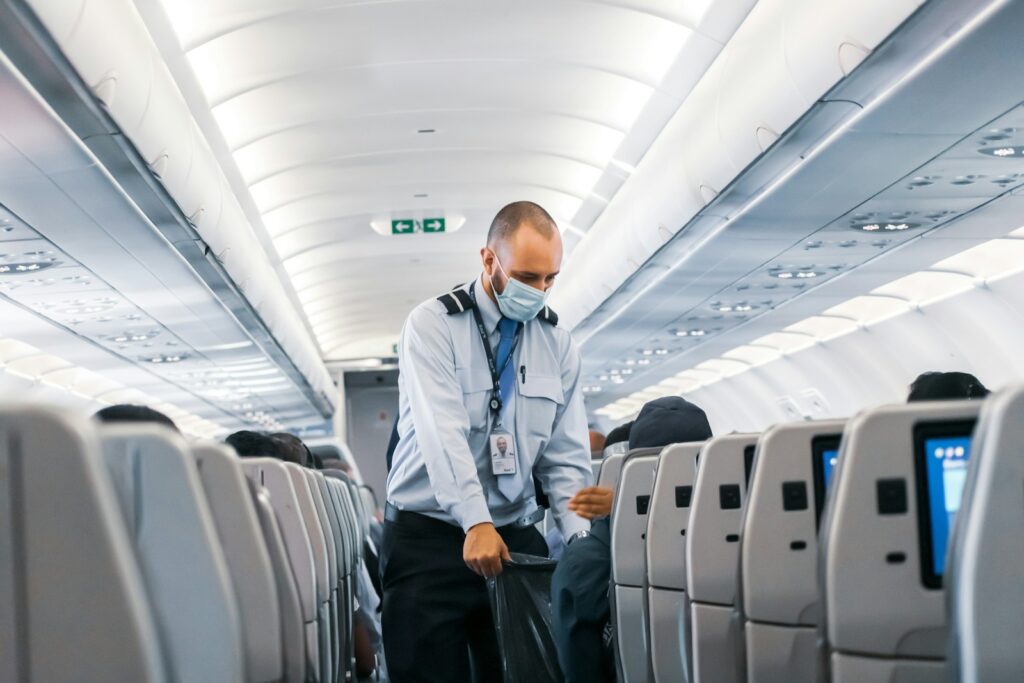
He persisted, suggesting, “I have two seats open next to me!” Ms. Barno, clearly disturbed, responded, “This is uncomfortable. Idk who you are and you’re describing what I’m wearing.” Realizing the source of the breach, she exclaimed, “That’s what I thought!” Her increasing discomfort was evident as she tried to disengage: “Not ok! Not cool.” and “Leave me alone.” Despite her clear objections, Ahmad continued, stating, “It will be interesting flight!” and then attempting to entice her with future benefits: “I can always give you good seats, access to the lounges and free flights too!! Just looking for one chance to prove myself!!”
Ms. Barno’s attorney, Joe Samo, conveyed the lasting impact of the incident, noting that it “really shook up Barno.” Given her professional need for frequent travel, Ms. Samo explained, “She has to travel a lot for work,” underscoring the ongoing distress this incident caused. Mr. Samo affirmed the lawsuit’s primary objective: “Our main goal is to hold them accountable, find out what happened and just seek responsibility.” The lawsuit itself accuses American Airlines of “negligent employment, supervision and sexual harassment.”
Despite the immediate assistance from flight attendants, who helped remove Ahmad from the plane with the aid of airline managers, Ms. Barno claimed the airline did not respond further to her complaints. American Airlines issued a statement on the matter, confirming, “We investigated the allegations and took appropriate action.” The airline further added that the employee involved in the complaint is no longer employed by American Airlines and was not on duty at the time of the alleged incident.
The vulnerability of information displayed on luggage tags extends beyond incidents involving airline employees. A female content creator named Kirsten shared her own unsettling encounter, revealing she received an unsolicited text message from a complete stranger who had read her luggage tag at the airport during a layover. While she did not disclose the specific airport, she received the text out of the blue during her travel day.
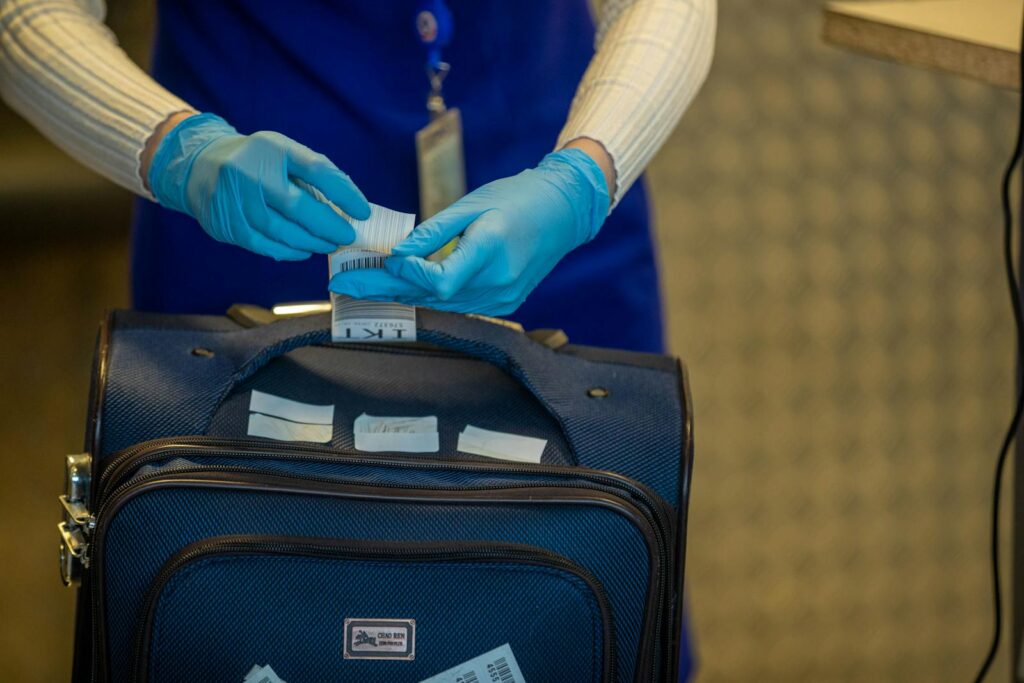
Kirsten posted a screenshot of the message from the stranger, identified as Nate, which read: “Hi Kristen, my name is Nate. I saw you and thought you were so beautiful so I had to find a way to talk to you. I saw your number on your luggage tag and decided to text you. I promise this isn’t as weird as it seems! Give a guy a chance? :)” Kirsten immediately took to TikTok, voicing her disbelief and discomfort. “Like, what? First of all, he spelled my name wrong. Second of all, if he wanted to talk to me so badly why didn’t he come up and talk to me like a normal human being?”
Her immediate concern pivoted to the potential compromise of her address, which was also present on her luggage tag. “I have no idea who this guy is, like, I didn’t notice a guy looking at me or anything and I’m also extra weirded out because like, I have my address on my luggage tag so he could potentially know where I live now,” she expressed. It remains unclear if Nate attempted further contact or if other incidents transpired.
Kirsten’s story resonated with many other women who shared similar experiences in her comment section. One recounted, “Had the guy who checked me in and scanned my ticket at the gate EMAIL ME ASKING ME OUT before the flight took off.” Another commenter added, “That happens to me. Weird that they are stalking and reading our stuff.” These anecdotes paint a vivid picture of the pervasive nature of unwanted approaches in travel settings. While most reactions were condemnatory, one male commenter offered a contrasting viewpoint: “I mean it’s a little creepy. But also romantic? Maybe?” highlighting differing perceptions of boundary violations.
Given the increasing frequency of such incidents, both from within airline systems and from casual observation, travelers must adopt proactive measures to protect their personal information. The digital age has also given rise to sophisticated scammers who prey on distressed travelers, often lurking on social media. These opportunistic individuals create fake accounts, impersonating airline customer service representatives to solicit sensitive information like booking confirmation numbers, phone numbers, or bank account details. They may also direct passengers to spoofed websites designed to harvest personal information for identity theft or fraudulent charges.
To navigate these modern travel hazards, vigilance and informed decision-making are paramount. When dealing with travel disruptions or seeking assistance, passengers should always prioritize official channels. Logging into your airline account and contacting customer service through the airline’s official app, website, chat feature, or published phone number is the safest approach. If physically at the airport, speaking directly to a customer service representative in person is advisable. For those who opt to seek assistance via social media, it is crucial to verify the airline’s official page by looking for a verification symbol or badge, and under no circumstances should personal information be shared publicly on these platforms.
Furthermore, if you suspect your personal information has been compromised or stolen, resources like IdentityTheft.gov are available to report the incident and obtain recovery steps. Imposters should be reported to the Federal Trade Commission at ReportFraud.ftc.gov. For comprehensive information on airline passenger protections and how to file a complaint if an airline is not treating you fairly, FlightRights.gov serves as an invaluable resource.
A key recommendation for securing personal data, particularly against the kind of casual observation that affected Ashley Barno and Kirsten, comes from American Airlines flight attendant Ally Case. She strongly advises travelers to reconsider how they display their contact information on luggage tags. Case shared a critical piece of advice with her TikTok viewers: “Always, always, always flip your information on your luggage card backward.” She lamented the common oversight, stating, “I cannot tell you how many people I see, on a daily basis, with their information displayed for anyone to see.” Many travelers now opt to place only an email address on their luggage tags, reducing the risk of strangers accessing their phone numbers or home addresses.
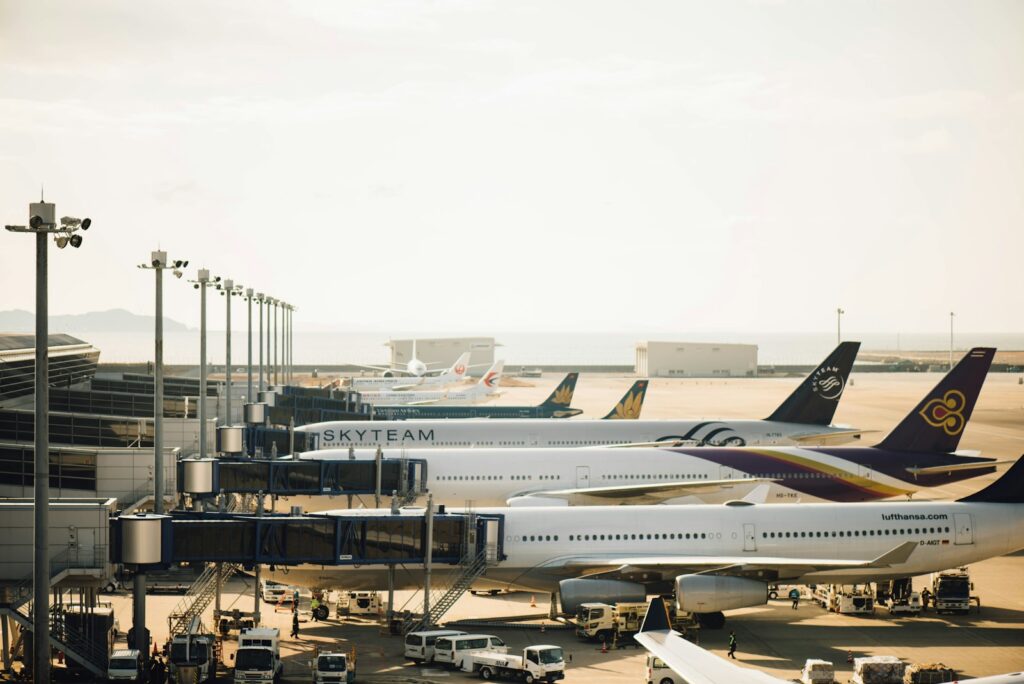
The gravity of these incidents places a significant onus on airlines to reinforce their data security measures and enhance employee training. The breaches, whether originating from an internal database or a luggage tag, erode passenger trust, fundamentally altering the travel experience from one of anticipation to one of apprehension. While airlines like Etihad and American Airlines have responded with internal investigations and disciplinary actions, the recurrence of such events suggests a deeper, systemic challenge in safeguarding passenger privacy.
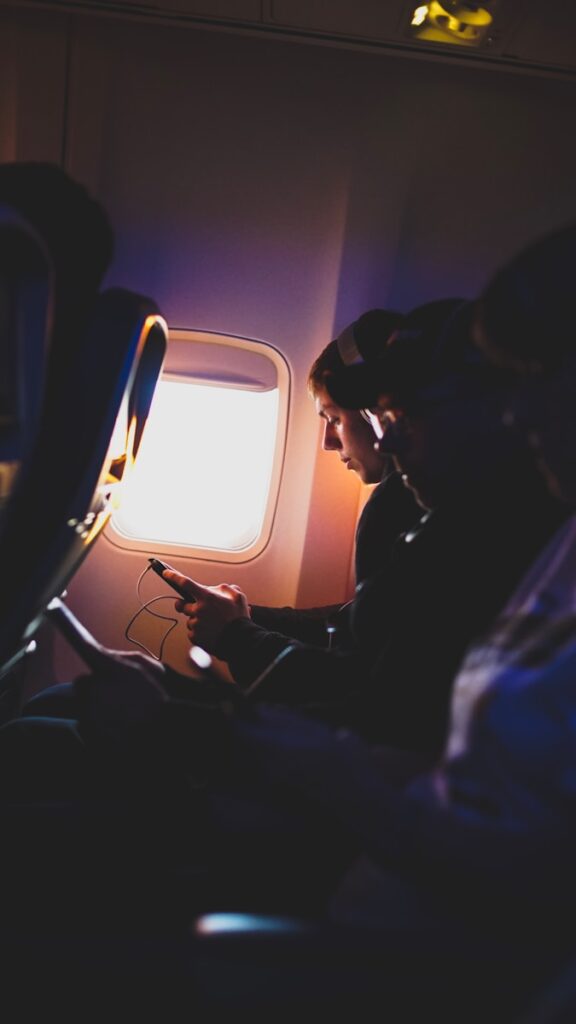
The journey of air travel should be defined by discovery and convenience, not by the unsettling realization that one’s personal data has been exploited. As technology continues to intertwine with every aspect of our lives, the responsibility to protect sensitive information falls not only on the individual but also, and perhaps more critically, on the institutions that collect and manage it. The path forward demands a collaborative effort: airlines must commit to unwavering data integrity and rigorous employee oversight, while travelers must empower themselves with knowledge and adopt practical habits to protect their digital and physical footprints. Only through such concerted action can the skies truly remain open and secure for all.




